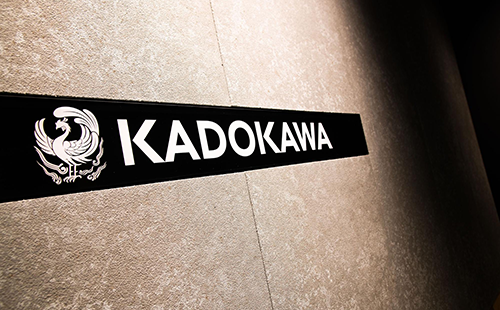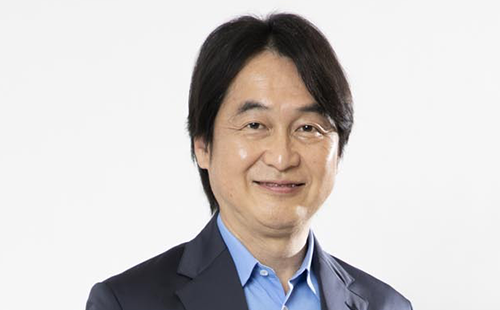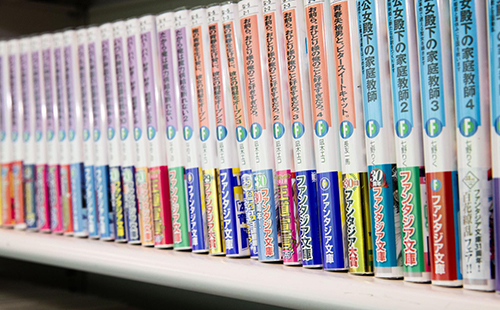2. Board of Directors, Nominating Committee, Remuneration Committee, Audit Committee, Independent Auditors
4. Board of Directors
4.1 Roles and responsibilities
The Board of Directors determines important matters, which have a material effect on the Company’s management, oversee business execution, as their important roles, and fulfill their duties.
The Company has established Rules of the Board of Directors. The Rules stipulate matters to be decided by the Board of Directors as matters to be resolved.
The Board of Directors makes judgments and decisions regarding statutory matters that require resolutions of the Board and matters that are deemed appropriate for resolution by the Board of Directors considering the importance, nature and other factors.
Moreover, the Board of Directors establishes criteria for decision-making for each position in order to allocate authority for matters regarding the execution of duties to Chief Officers, etc., thereby facilitating decision-making.
The Company flexibly reviews the content and scope of the criteria for decision-making authority according to the circumstances of the Company.
4.2 Structure of the Board of Directors
The Articles of Incorporation of the Company stipulate that the number of Directors of the Company shall be no more than 15 and that Outside Directors shall account for a majority of the Board members to ensure the soundness and transparency of management. The Company shall elect Director candidates from the aspects of both the promotion of Global Media Mix with Technology, which is the basic strategy of the Company, and the reinforcement of governance. Under laws and regulations, the Nominating Committee shall determine agenda items about the election of Directors. The Nominating Committee shall consider the size of the Board when it determines agenda items about the election of Directors so that a sufficient number of members will be retained to enable active debate from various viewpoints and the Board will not become excessive in scale.
4.3 Criteria for independence of Directors
In addition to criteria regulated by Tokyo Stock Exchange Inc., as standards on independence when appointing an independent officer, the Company places following criteria on transaction amounts and so forth for transactions between the Company and a counterpart.
The counterpart shall not fall under any of the following:
- An entity of which the Group is a business partner (an entity whose sales to the Group account for 2% or more of the entity’s consolidated sales in any one of the three most recent fiscal years) or a business executor of the entity
- A business partner of the Group (an entity which Group’s sales to that entity account for 2% or more of the Company’s consolidated sales in any one of the three most recent fiscal years) or a business executor of the business partner
- A business executor of a financial institution from which the Company has loaned a large sum of money (loans accounting for 2% or more of the Company’s consolidated total assets as of the end of the most recent fiscal year)
- A consultant, an expert in accounting, or a specialist in law who has received from the Company a large sum of cash or other financial assets, other than officer’s remuneration: for an individual, 10 million yen or more per year in the current and the previous three years; or for a corporation, 2% or more of total sales of the said corporation paid out as remuneration on average over the past three years (if the person who earns such assets is a company, association or other group, an individual who is a member of said group)
- A business executor of an organization to which the Group made a donation exceeding a total sum of the greater of 10 million yen per year or 2% of annual aggregate revenue of the organization in any one of the three most recent fiscal years
- A person who is or has been an Accounting Auditor of the Group (for a judicial person, an individual who is or has been in charge of audits of the Group) in the current and the previous three years
- A person who owns, directly or indirectly, 10% or more of all voting rights of the Company (for a judicial person, a business executor thereof)
4.4 Abilities and reason for appointment
Mr. Takeshi Natsuno serves as a Member of the Board and Chief Executive Officer of the Company and President and CEO of DWANGO Co., Ltd., a subsidiary of the Company. As a Member of the Board and CEO of the Company, he contributes to the sustainable growth of the Company, including helping drive “Global Media Mix with Technology”, which is the fundamental strategy of the Mid-term Management Plan. He has also served as an executive of numerous companies and has abundant experience and extensive knowledge gained as a corporate manager.
Mr. Naohisa Yamashita serves as a Member of the Board, Chief Human Resource Officer and Chief Literature & Film Officer. He also served as Director of the Company and its subsidiaries and is well versed in the business of the Company and its subsidiaries. Moreover, he has experience in the publishing domain and personnel and general affairs of the Company and abundant experience and extensive knowledge gained in the management of the Company and its subsidiaries.
Mr. Shinobu Murakawa serves as a Member of the Board and Chief Operating Officer of the Company. He is involved in problem-solving in a wide range of fields, including sales, marketing and corporate planning. He also served as a Director of subsidiaries of the Company and is well versed in the business of the Company and its subsidiaries.
Ms. Noriko Kase serves as a Member of the Board of the Company. She engaged in various fields including book editing and corporate marketing, and now serves as Chief Executive Officer of KADOKAWA ASCII Research Laboratories, Inc.
Mr. Nobuo Kawakami serves as a Member of the Board of the Company. He also established DWANGO Co., Ltd., which is a subsidiary of the Company, and served as Representative Director of the company for years, and currently serves as Advisor of the company.
Mr. Hiroo Unoura serves as an Outside Director of the Company. Also, he has abundant expertise and experience as a top management executive active in cutting-edge fields, working on strengthening competitiveness and profitability of the domestic business as well as expanding the global business at NIPPON TELEGRAPH AND TELEPHONE CORPORATION.
Ms. Ruth Marie Jarman serves as an Outside Director of the Company. As the CEO of Jarman International KK, she has abundant experience and deep insight in global expansion, inbound businesses and support for women’s activities in the management of the Company.
Mr. Tadaaki Sugiyama serves as an Outside Director of the Company. He has been an officer responsible for the Legal & Compliance Division at Kao Corporation over many years. He was representative director of The Association of Corporate Legal Departments. He has thus extensive experience and great insight in the field of legal affairs and compliance.
Mr. Yu Sasamoto serves as an Outside Director of the Company. He has served as Chief Executive Officer of DAZN Japan Investment GK, the Representative Director of Twitter Japan K.K and the Vice President of JAPAC of Twitter, Inc., where he led the growth of Twitter’s Japan and Asian businesses, and also having contributed to the growth of Microsoft Corporation’s online business as Managing Executive Officer, he has abundant experience and deep insight as a top management executive in various fields including IT and technology.
Mr. Ayumi Uzawa serves as an Outside Director of the Company. As a certified public accountant, he has a high degree of professionalism in financial and accounting affairs. He has been an outside officer at many companies and a member of an independent committee. He has abundant experience and deep insight particularly in the field of finance and accounting.
Ms. Etsuko Okajima serves as an Outside Director of the Company. She has experiences serving as a President, CEO & Representative Director of ProNova Inc. and was involved as a consultant in supporting the development of next-generation leaders and human resource development. She also has extensive experience and deep insight into the strengthening of management systems, having served as Outside Director at many companies.
Mr. Koichi Kusano serves as an Outside Director of the Company. He has achieved remarkable success as a lawyer over many years, particularly in the fields of mergers and acquisitions and corporate law, and he has also served as a justice of the Supreme Court, demonstrating a high level of expertise. He has acted as an outside officer of companies and taught at law schools in Japan and abroad, possessing extensive experience and deep insight not only in legal affairs and governance but also in international matters and across diverse industries.
4.5 Attendance
| Name | Attendances | Attendance Rate |
|---|---|---|
| Takeshi Natsuno | 19 / 19 meetings | 100% |
| Naohisa Yamashita | 19 / 19 meetings | 100% |
| Shinobu Murakawa | 19 / 19 meetings | 100% |
| Noriko Kase | 19 / 19 meetings | 100% |
| Nobuo Kawakami | 16 / 19 meetings | 84% |
| Cindy Chou | 18 / 19 meetings | 95% |
| Hiroo Unoura | 19 / 19 meetings | 100% |
| Ruth Marie Jarman | 18 / 19 meetings | 95% |
| Tadaaki Sugiyama | 19 / 19 meetings | 100% |
| Yu Sasamoto | 17 / 19 meetings | 90% |
| Akihiko Shiba | 19 / 19 meetings | 100% |
| Ayumi Uzawa | 19 / 19 meetings | 100% |
| David Macdonald | 19 / 19 meetings | 100% |
| Etsuko Okajima | 16 / 16 meetings | 100% |
(Notes)
1. In the fiscal year ended on March 31, 2025, a total of 19 meetings of the Board of Directors (12 regular and 7 extraordinary meetings) were held.
2. Director Ms. Etsuko Okajima was newly appointed at the 10th General Meeting of Shareholders held on June 18, 2024, therefore, the number of Board of Directors’ meetings she attended is different from the other officers.
4.6 Evaluation of effectiveness
Every year, the Company discloses a summary of its evaluation of the effectiveness of the Board of Directors in its Corporate Governance Report. To maintain and improve the effectiveness of the Board of Directors, a questionnaire survey was administered to the Directors, and the effectiveness of the Board of Directors was analyzed and evaluated at its May 2025 meeting. In this evaluation of effectiveness, the allocation of matters to be decided by the Board of Directors and matters to be delegated to management was found to be appropriate from the perspective of separation of supervision and execution and rapid decision-making. In addition, high marks were received for the verification of the suitability of cross-shareholdings, the establishment of a system for dialogue with shareholders, and the development of internal controls and a risk management system. The final evaluation was that the effectiveness of the Board of Directors has been ensured.
On the other hand, there were opinions expressing a desire for more in-depth discussions on management strategies and business strategies, as well as on the appropriate setting of agenda items and manner of expression in light of the composition of the Board of Directors, where Outside Directors constitute a majority. Issues identified in the evaluation of effectiveness are shared at the meeting of the Board of Directors, and we will continue to enrich the discussions.
5. Nominating Committee
5.1 Role, Responsibilities and Structure
The Nominating Committee consists of five Directors (four Outside Directors and one Inside Director), and is chaired by an Outside Director. The Nominating Committee formulates a basic policy on the election and dismissal of Directors, determines the content of agenda items on the election and dismissal of Directors, submits reports on the election and dismissal of Chief Officers to the Board of Directors and examines CEO succession plans.
5.2 Status of Activities (Fiscal Year Ended March 31, 2025)
The Nominating Committee was convened a total of nine times and held deliberations on the basic policy on the election and dismissal of Directors, including the ratio of female officers the length of a term of office, and the nature of a succession plan, and passed resolutions on the nomination of other individual officers. The attendances of each member are as follows.
| Name | Attendances | Attendance Rate |
|---|---|---|
| Hiroo Unoura | 9 / 9 meetings | 100% |
| Ruth Marie Jarman | 9 / 9 meetings | 100% |
| Tadaaki Sugiyama | 9 / 9 meetings | 100% |
| Etsuko Okajima | 7 / 7 meetings | 100% |
| Naohisa Yamashita | 7 / 7 meetings | 100% |
(Note) Mr. Naohisa Yamashita and Ms. Etsuko Okajima were selected as new Nominating Committee members at the meeting of the Board of Directors held on June 18, 2024, so the number of meetings of the Nominating Committee is different for them than for the other Directors.
6. Remuneration Committee
6.1 Role, Responsibilities and Structure
The Remuneration Committee consists of four Directors (three Outside Directors and one Inside Director), and is chaired by an Outside Director. The Remuneration Committee formulates policies on the determination of remuneration for individual Directors and Chief Officers and determines remuneration for individual Directors and Chief Officers.
6.2 Status of Activities (Fiscal Year Ended March 31, 2025)
The Remuneration Committee held 11 meetings in total, deliberated the redesign of the stock compensation scheme and revision of standard amount of compensation, and passed resolutions regarding other details of individual officers’ remuneration, considering the status of incentive plans linked to medium- to long-term business targets. The attendances of each member are as follows.
| Name | Attendances | Attendance Rate |
|---|---|---|
| Ruth Marie Jarman | 11 / 11 meetings | 100% |
| Yu Sasamoto | 11 / 11 meetings | 100% |
| David Macdonald | 11 / 11 meetings | 100% |
| Shinobu Murakawa | 8 / 8 meetings | 100% |
| Hiroo Unoura | 3 / 3 meetings | 100% |
(Note) Mr. Shinobu Murakawa was selected as a new Remuneration Committee member at the meeting of the Board of Directors held on June 18, 2024, and Mr. Hiroo Unoura retired from his position as a Remuneration Committee member at the conclusion of the General Meeting of Shareholders held on the same day, so that the number of meetings of the Remuneration Committee is different for them than for the other Directors.
7. Audit Committee
7.1 Role, Responsibilities and Structure
The Audit Committee consists of three Outside Directors and is chaired by an Outside Director. The Audit Committee audits Directors and Chief Officers' execution of their duties, prepares audit reports, and determines the content of agenda items on the selection, dismissal and non-reappointment of an Independent Auditor. The Audit Committee shall conduct audits in cooperation with the Company’s internal audit division based on audit plans determined by the Audit Committee.
7.2 Status of Activities (Fiscal Year Ended March 31, 2025)
The Audit Committee was convened a total of 22 times. Its major auditing targets are information security system and the governance of overseas business. It audited the status of the handling of the system problem that occurred in June 2024 and overseas subsidiaries, including on-site audits of the subsidiary in the United States. It also investigated the amount paid for the issuance of new shares through third-party allocation which was implemented in January 2025 and expressed its opinion to the effect that the amount paid was not particularly favorable to Sony Group Corporation, the subscriber.)
The attendances of each member are as follows.
| Name | Attendances | Attendance Rate |
|---|---|---|
| Tadaaki Sugiyama | 22 / 22 meetings | 100% |
| Akihiko Shiba | 22 / 22 meetings | 100% |
| Ayumi Uzawa | 22 / 22 meetings | 100% |
8. Independent Auditors
8.1 Structure
(1) Name of audit firm:
Ernst & Young ShinNihon LLC.
(2) Length of continuous auditing service:
Since April 1, 2020
(3) Certified public accountants who executed the service
Mr. Hirofumi Harashina, Designated Engagement Partner
Mr. Keiichi Wakimoto, Designated Engagement Partner
(Note) The number of years of continuous auditing service is less than 7 years.
(4) Composition of persons who provide assistance for audit work
Persons who provide assistance for the Company’s accounting audit work consists of 9 certified public accountants and 31 other persons.
(5) Policy for selecting accounting auditor and reasons for selection
Audit Committee selects an Independent Auditor by (1) obtaining from each candidate accounting firm documents that describe an outline of the firm, audit execution system, etc. and estimated audit fees, (2) receiving information from and exchanging opinions with the business management division, and (3) collecting and analyzing information through interviews with candidate firms, inquiries, etc. If it is determined that an Independent Auditor is insufficiently qualified for implementation of audits based on the policy for determining the dismissal or non-reappointment of an Independent Auditor, details of the agenda on the dismissal or non-reappointment of an Independent Auditor shall be determined.
(6) Evaluation of Independent Auditor by Audit Committee
The Audit Committee has established criteria for evaluating an Independent Auditor. It receives information from accounting and internal audit divisions and exchange opinions with said divisions. Then, it reviews and comprehensively evaluate the reasonableness of an Independent Auditor in terms of quality management, independence, expertise and handling of matters to be improved.
8.2 Audit fees
(1) Audit fees for certified public accountants and others
| Classification | Fiscal year ended March 31, 2024 | Fiscal year ended March 31, 2025 | ||
|---|---|---|---|---|
| Compensation for audit certification services (millions of yen) |
Compensation for non-audit services (millions of yen) |
Compensation for audit certification services (millions of yen) |
Compensation for non-audit services (millions of yen) |
|
| The Company | 111 | ‐ | 115 | ‐ |
| Consolidated subsidiaries | 9 | ‐ | 9 | ‐ |
| Total | 120 | ‐ | 124 | ‐ |
(2) Fees *(excluding (1)) for persons belonging to the same network as the certified public accountants who conducted audits for the Company (Ernst & Young ShinNihon LLC)
| Classification | Fiscal year ended March 31, 2024 | Fiscal year ended March 31, 2025 | ||
|---|---|---|---|---|
| Compensation for audit certification services (millions of yen) |
Compensation for non-audit services (millions of yen) |
Compensation for audit certification services (millions of yen) |
Compensation for non-audit services (millions of yen) |
|
| The Company | ‐ | ‐ | ‐ | ‐ |
| Consolidated subsidiaries | 47 | 3 | 50 | 4 |
| Total | 47 | 3 | 50 | 4 |
(Fiscal year ended March 31, 2024)
The non-audit services at the consolidated subsidiaries entail a tax advisory service.
(Fiscal year ended March 31, 2025)
The non-audit services at the consolidated subsidiaries entail a tax advisory service.
(3) Policy for determining audit fees
The Company determines audit fees by its business scale, characteristics, the number of days spent for audits, etc. and upon obtaining consent of Audit Committee.
(4) Reason for agreement of Audit Committee on audit fees, etc. for Independent Auditor
Audit Committee agreed on audit fees, etc. for Independent Auditor based on the review and judgment that audit fees were reasonable, considering the content of audit plan, status of execution of services, audit fees in the past, basis for calculation of estimated audit fees, etc.













